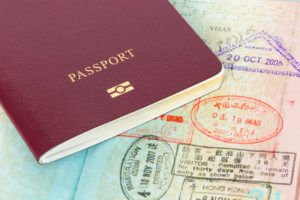Canada offers a wealth of opportunities, making it a popular destination for immigrants worldwide. However, transitioning to a new life in Canada often comes with financial challenges. Whether you’ve arrived for work, school, or to start a new life, getting your finances in order from the beginning can make your experience much smoother. This guide provides essential financial planning tips for new immigrants in Canada, covering aspects from budgeting and banking to building credit and investing.
1. Knowing the Cost of Living in Canada
Before diving into financial planning, it’s important to understand the cost of living in Canada. The cost varies depending on the province or city where you plan to settle. Cities like Toronto and Vancouver tend to have higher living costs due to housing prices, whereas smaller towns and cities often provide more affordable options.
Key Expenses to Consider:
Housing: Rent or mortgage payments can make up a large portion of your monthly expenses. Research average housing costs in the area where you plan to live.
Utilities and Internet: These services are often separate from your rent. Budget for electricity, water, heating, and internet services.
Groceries: Food costs can add up quickly. Expect to spend approximately $200–$400 per person per month on groceries.
Transportation: Whether you plan to use public transportation or buy a car, consider the associated costs such as fuel, insurance, and transit passes.
Having a realistic understanding of these costs will help you create a practical budget and avoid unexpected financial burdens.
2. Open a Canadian Bank Account
One of the first steps after arriving in Canada is to open a local bank account. Having a Canadian bank account will not only make it easier for you to access your money but also help you build a financial footprint in the country.
Types of Bank Accounts:
Chequing Account: This is used for everyday transactions such as paying bills, receiving salary deposits, and making purchases. Chequing accounts often have monthly fees but provide easy access to your funds.
Savings Account: Designed for storing money and earning interest, savings accounts typically have higher interest rates than chequing accounts but fewer withdrawal options.
Most major Canadian banks, such as the Royal Bank of Canada (RBC), Scotiabank, and TD Bank, offer special programs for newcomers that come with low fees and bonuses for opening accounts.
Tips for Choosing a Bank Account:
Compare account fees and transaction limits.
Look for accounts that offer newcomer incentives, such as waived fees or free chequing for a set period.
Understand the withdrawal limits and costs of sending money abroad, as many new immigrants need to send remittances to family members in their home countries.
3. Create a Budget
Budgeting is crucial, especially when starting fresh in a new country. You can monitor the costs and make sure you’re living within your means with a budget.
Steps to Create a Budget:
List your income sources: Include salary, government benefits, or other income streams.
Track your expenses: Start with fixed costs such as rent, utilities, and transportation, then account for variable expenses like groceries, entertainment, and dining out.
Set saving goals: Whether you’re saving for an emergency fund, a car, or education, having clear goals will help you allocate your savings wisely.
Use budgeting tools: Apps like Mint or YNAB (You Need A Budget) can help you keep track of your spending and savings on the go.
As a new immigrant, it’s advisable to keep a conservative budget during the initial months while you settle and understand the costs associated with your new life in Canada.
4. know Canadian Taxes
Canada’s tax system may be different from the one in your home country, so it’s important to familiarize yourself with how it works. Taxes in Canada are collected at both the federal and provincial levels and fund essential services such as healthcare, education, and public infrastructure.
Types of Taxes to Be Aware Of:
Income Tax: This is deducted from your earnings by your employer and includes both federal and provincial taxes. Each province has its own tax rates.
Sales Tax: Goods and services in Canada are subject to either GST (Goods and Services Tax), PST (Provincial Sales Tax), or a combination of both known as HST (Harmonized Sales Tax), depending on the province.
Property Tax: If you purchase property in Canada, you will be required to pay annual property taxes to your local municipality.
Tax Filing: You’ll need to file an annual tax return if you’re earning income in Canada. New immigrants may be eligible for certain tax credits and deductions, such as the GST/HST credit or Canada Child Benefit (CCB) for families. It’s recommended to work with a tax professional or use online tax software to ensure you’re taking advantage of these opportunities.
5. Build Your Credit History
Building a strong credit history is essential in Canada as it will impact your ability to rent housing, obtain loans, and even secure some jobs. Many new immigrants face challenges because they arrive without a credit history in Canada, even if they had a good credit score in their home country.
Tips for Building Credit:
Apply for a Newcomer Credit Card: Many Canadian banks offer credit cards designed for newcomers with little or no credit history. Use the card regularly but ensure you pay off the full balance each month to avoid interest charges.
Pay Bills on Time: Consistently paying rent, utilities, and other bills on time can also help establish your creditworthiness.
Keep Credit Utilization Low: Aim to use no more than 30% of your available credit limit to maintain a good credit score.
Check Your Credit Report: You can request a free copy of your credit report from credit bureaus like Equifax or TransUnion to monitor your progress.
Over time, a strong credit score will open up more financial opportunities, such as better loan terms and higher credit limits.
6. Save for Retirement Early
Canada offers various retirement savings plans, and it’s never too early to start thinking about your future. As a new immigrant, you may want to prioritize short-term financial goals, but saving for retirement should also be part of your long-term planning.
Retirement Savings Options:
Registered Retirement Savings Plan (RRSP): Contributions to an RRSP are tax-deductible, meaning you can reduce your taxable income and potentially receive a tax refund. Funds in an RRSP grow tax-free until withdrawal, usually during retirement.
Tax-Free Savings Account (TFSA): A TFSA allows you to save and invest money without paying taxes on the earnings. Unlike the RRSP, Payments to a TFSA are not tax deductible, in contrast to RRSPs, but withdrawals are tax free.
Both of these accounts offer opportunities to grow your wealth while benefiting from tax advantages, making them valuable tools in your financial plan.
7. Get Insurance Coverage
Insurance is an essential part of financial planning in Canada, as it protects you and your family from unexpected events. Several types of insurance are important for new immigrants. Click here
Types of Insurance to Consider:
Health Insurance: Canada has a universal healthcare system, but you may need private health insurance to cover specific services like dental care or prescription medications. Some provinces also have a waiting period before public health coverage begins, so purchasing private insurance can help during that time.
Life Insurance: If you have dependents, life insurance can provide financial security for them in case of your death.
Auto Insurance: If you plan to drive in Canada, auto insurance is mandatory. To get the greatest coverage for your needs, compare different plans.
Tenant or Home Insurance: Whether renting or buying, tenant insurance protects your belongings, while home insurance covers your property and liability.
8. Invest Wisely
Once your basic financial needs are covered, consider investing to grow your wealth. Canada offers various investment opportunities for individuals at different stages of their financial journey.
Types of Investments:
Stocks and Bonds: Buying shares in Canadian or international companies can be a good way to grow your wealth over time. Bonds, on the other hand, offer fixed interest returns and are considered lower-risk.
Mutual Funds and ETFs: These are collections of stocks or bonds managed by professionals, providing diversification and potentially lower risk than investing in individual stocks.
Real Estate: If you have the capital, investing in Canadian real estate can be a solid long-term investment, especially in cities with growing populations and housing demands.
Before investing, consult with a financial advisor to understand the risks and benefits and to develop an investment strategy aligned with your goals.
Moving to a new country is exciting, but it requires careful financial planning to ensure long-term success. By understanding the cost of living, opening a bank account, budgeting, building credit, saving for retirement, and protecting yourself with insurance, you can confidently navigate your new financial landscape in Canada. Taking control of your finances from the start will set you up for a secure and prosperous future in your new home.








